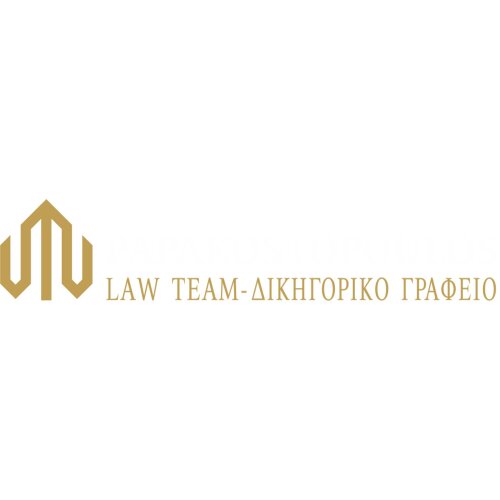Best Will & Testament Lawyers in Pátrai
Share your needs with us, get contacted by law firms.
Free. Takes 2 min.
List of the best lawyers in Pátrai, Greece
About Will & Testament Law in Pátrai, Greece:
Will & Testament Laws in Pátrai, Greece, like the rest of the country, are largely governed by the Greek Civil Code. The laws are designed to protect the rights of the testator - the person making the will - while also ensuring rightful inheritance for the beneficiaries. Greece allows both oral (nuncupative) and written (holographic or public) wills, though the latter is more common and recommended for clarity and probity.
Why You May Need a Lawyer:
Writing a will can seem simple, but legal intricacies often make the process complex. Specific language must be used for the testament to be effective. A lawyer can help ensure that your wishes are legally enforceable. More challenging conditions like dealing with debt after death, tax planning, guardianship issues, or provisions for minor children are handled appropriately. Additionally, having a will properly completed and validated under the guidance of a lawyer can prevent inheritance conflicts among beneficiaries at a later stage.
Local Laws Overview:
In Pátrai, Greece, a testator must be of legal age (18 or above) and possess mental soundness to create a will. Not all assets can be freely bequeathed; the law demands a compulsory share ("reserved portion") for the close relatives of the deceased, namely the descendants, the spouse, and in some cases, the parents - unless legally disinherited. Also, will amendments should be made under the prescribed guidelines and witnessed properly, just as in creating a new will.
Frequently Asked Questions:
1. Can I disinherit a family member in my will?
Yes, it’s possible under certain circumstances and for valid reasons as per Greek law. However, putting this into effect could be complex, hence seeking legal advice is recommended.
2. Do witnesses need to be present when signing a will?
Yes, for public wills, the presence of at least two witnesses is legally required.
3. What happens if I die without a will (intestate)?
If you pass away without a will, Greek intestacy laws come into play. Your estate will be divided among your closest relatives as per the legal procedures prescribed.
4. Can I write my will myself?
Yes, Greek law allows holograph will, but it's subject to specific procedures. A lawyer can guide you better to avoid any loopholes or errors that might render the will invalid.
5. Is my will from another country valid in Greece?
Greece recognizes foreign wills if they comply with the law of the place where the will was drafted or if the will corresponds to the nationality law of the testator - but tax regulations may differ. It's smart to consult with a local attorney in Pátrai.
Additional Resources:
Useful resources include the Greek National Notary's Portal, Greek Law blogs, and the official Ministry of Justice portal. Local law firms in Pátrai may also provide free initial consultation services or informational guides on their websites.
Next Steps:
If you need legal assistance in drafting or updating your Will & Testament, consult with an experienced local attorney specializing in Wills and Estates. Ensure to gather all necessary documents related to your assets, financial records, and beneficiary identification details. Remember, professional legal advice is valuable in preventing potential future conflicts arising from your will.
Lawzana helps you find the best lawyers and law firms in Pátrai through a curated and pre-screened list of qualified legal professionals. Our platform offers rankings and detailed profiles of attorneys and law firms, allowing you to compare based on practice areas, including Will & Testament, experience, and client feedback.
Each profile includes a description of the firm's areas of practice, client reviews, team members and partners, year of establishment, spoken languages, office locations, contact information, social media presence, and any published articles or resources. Most firms on our platform speak English and are experienced in both local and international legal matters.
Get a quote from top-rated law firms in Pátrai, Greece — quickly, securely, and without unnecessary hassle.
Disclaimer:
The information provided on this page is for general informational purposes only and does not constitute legal advice. While we strive to ensure the accuracy and relevance of the content, legal information may change over time, and interpretations of the law can vary. You should always consult with a qualified legal professional for advice specific to your situation.
We disclaim all liability for actions taken or not taken based on the content of this page. If you believe any information is incorrect or outdated, please contact us, and we will review and update it where appropriate.










